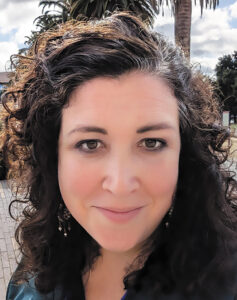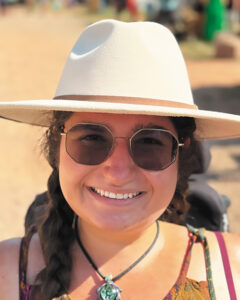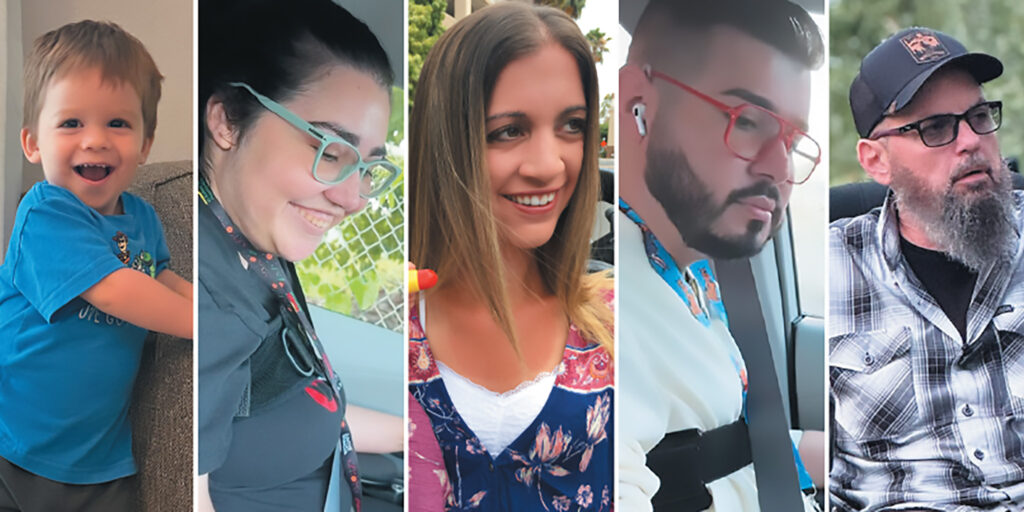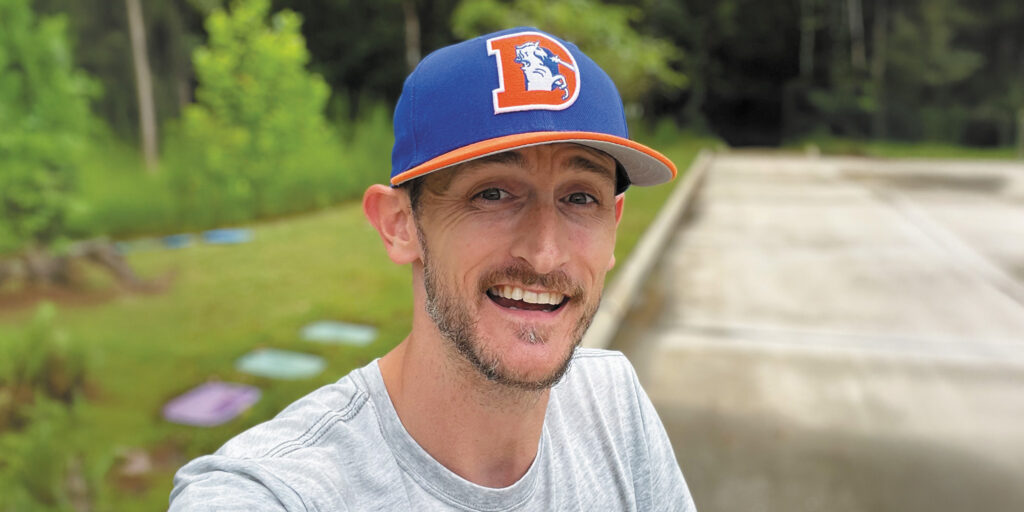
Financial Education and Planning Help You Take Charge of Your Financial Future
By Maggie Callahan | Friday, November 14, 2025
5 Second Summary
No matter where you are in your neuromuscular disease journey, it’s not too early or too late to begin financial planning. Use these tips and resources to build your financial foundation and find affordable financial education and guidance.
From strict Medicaid asset limits to frequent medical expenses to underpublicized public programs, families with disabilities can feel like they are walking a financial tightrope trying to balance it all.

Jody Ellis
“Financial planning can be stressful for anyone, but when you add a neuromuscular disease to the equation, it can feel especially daunting,” says Marissa Lozano, MDA’s Director of Community Education.
Fortunately, with the right knowledge, planning tools, and professional guidance, people living with neuromuscular diseases and their families can improve their financial security and peace of mind, says Jody Ellis, Director of the ABLE National Resource Center, managed by National Disability Institute.
“People with disabilities deserve financial stability and empowerment,” she says. “They need to know that they are not alone and there are services and programs that can help.”
Whether you have $10 in the bank or $10 million, financial planning is accessible to you.
Build your financial foundation
Creating a solid financial plan involves education and guidance, but the best place to start is by evaluating your current situation.
“You need to begin by assessing all accounts and policies you have, who is involved in your finances, and who might be involved in the future, such as relatives who might leave you an inheritance,” says Bruce Sham, CLF, an advanced special care planner and the founder of Special Journey Solutions, a financial planning firm specializing in supporting families with special needs individuals in Pennsylvania.
When compiling this list, include information such as:
- Income sources: wages, Social Security Disability Insurance (SSDI), Supplemental Security Income (SSI), or benefits programs
- Assets and accounts: checking, savings, ABLE accounts, retirement accounts, 529 college savings programs, trusts, and any other assets
- Insurance policies: life, health, and long-term care coverage
- Monthly expenses: medications, therapies, housing, utilities, food, personal care products, and other recurring costs
- Future considerations: inheritances, guardianship arrangements, or special needs trust planning, as well as beneficiary information for any of your accounts and policies
Find affordable financial education
Next, take advantage of the many free and affordable financial education resources available in person and online.

Marissa Lozano
For in-person learning, community colleges, libraries, local government agencies, and nonprofits may offer free or low-cost finance classes that cover topics such as credit, debt management, and household economics.
MDA’s Community Education programs are an essential resource for individuals in the disability community seeking to gain a deeper understanding of benefits, budgeting, and planning for the future.
“Whether you are a parent of a young child with a neuromuscular disease, a young adult with a neuromuscular disease going to college, or a retiree who was just diagnosed, we have financial planning information tailored for your stage in life,” Marissa says. “These resources are designed to help you feel confident and empowered to pursue your goals one step at a time.”
MDA’s offerings include self-paced Access Workshops, printable checklists, and on-demand webinars with practical steps to understanding anything from securing a job to insurance to the difference between SSI and SSDI.
“Our educational resources take out the guesswork and allow you to see a clear path forward to your financial goals,” she says.
Other organizations also provide valuable resources online, including:
- National Disability Institute’s Financial Resilience Center provides regularly updated resources on topics such as credit, taxes, identity theft, and more.
- The Consumer Financial Protection Bureau (CFPB) offers free consumer financial education resources through the Your Money, Your Goals toolkit and its companion guide Focus on People with Disabilities.
- MyMoney.gov, offered through the US Financial Literacy and Education Commission, provides financial tools like calculators, budgeting worksheets, and checklists.
- Khan Academy offers a free online course in financial literacy.
Enlist a financial professional
Education is essential, but it doesn’t replace expert advice. For parents navigating finances after a child’s neuromuscular diagnosis — or adults planning for the future after being diagnosed with a neuromuscular condition — working with a financial advisor or special needs expert can ease the burden and reveal resources they might otherwise miss.
“It is so important to work with someone well-versed in special needs and disabilities,” Bruce says. Illustrating his point, he tells the story of a family he worked with: “The man had ALS, and I was able to inform him that the group life insurance he pays into — a couple bucks a month — accelerated access to $250,000 of his life insurance policy to help pay for care at home. He didn’t know that, and nobody offered to tell him about it.”
For law student Lyza Weisman, who lives with spinal muscular atrophy (SMA), working with a financial professional gave her the reassurance she needed. “I found my financial planner through my state’s vocational rehabilitation service in Colorado, and what I got from her was the reassurance that I wasn’t doing something wrong,” she explains. “When you’re managing Medicaid, SSI, an ABLE account, and a trust all at once, it gets so blurry and confusing. Just having someone confirm that I was crossing my T’s and dotting my I’s gave me peace of mind.”

Lyza Weisman
Plan for your future
No matter where you are in your neuromuscular disease journey, Bruce says it’s never too early or too late to begin financial planning.
Lyza, who plans to pursue a career in disability law, agrees. While the process can be daunting, achieving financial independence has given her the power to build the life she wants.
“It’s frustrating when you realize how many financial barriers are holding you back and keeping you from doing what you want to do,” she says. “But it is worth the fight. The more we push forward by learning and planning, the closer we get to financial freedom and the lives we want to live. And when we get there, the most important thing is to pay it forward and help others who are on the same path.”
Maggie Callahan is a frequent contributor to Quest Media.
Tips for Working with a Financial Professional
Who to work with?
Look for one of these types of professionals:
- Chartered special needs consultant (ChSNC®)
- Disability law attorney
- Special needs trust attorney
- Certified financial planner with expertise in disability benefits and experience working with individuals with disabilities
Where to find them?
These organizations and resources can help:
- MDA Resource Center staff members can provide one-on-one support for individuals and families looking for information and resources to help them navigate their disease journey. Contact the Resource Center at 833-ASK-MDA1 or ResourceCenter@mdaUSA.org.
- The American College of Financial Services has a professional directory that can help you locate a ChSNC®.
- Every state has a vocational rehabilitation (VR) agency that helps people with disabilities access education, employment support, and benefits. They may have suggestions for financial and legal professionals.
- Professional associations, like the Academy of Special Needs Planners, can connect families with attorneys, financial planners, and trust officers experienced in disability and special needs planning.
- Local Centers for Independent Living (CILs) or disability rights groups can help connect families with specialists in their area.
Is it affordable?
Working with a professional might sound intimidating and expensive, but it doesn’t have to be.
“Ask if they’ll offer a free consultation,” says Bruce Sham, CLF, an advanced special care planner. In some cases, the fee is contingent on results. “If we don’t get clients the benefits or back payments from sources like Social Security, then there’s no fee. If we do secure the benefits, they pay me once they receive the money,” he says.
Colorado law student Lyza Weisman’s state vocational rehabilitation program covered the cost of her financial planner. Check out your state’s benefits.
Next Steps and Useful Resources
- Build your financial power with MDA’s free, online workshop Access to Financial Independence.
- MDA community members share tips to save money when you’re balancing health and disability-related expenses.
- To get one-on-one assistance, contact the MDA Resource Center at 833-ASK-MDA1 or ResourceCenter@mdaUSA.org.
- Stay up to date on Quest content! Subscribe to Quest Magazine and Newsletter.
Disclaimer: No content on this site should ever be used as a substitute for direct medical advice from your doctor or other qualified clinician.




